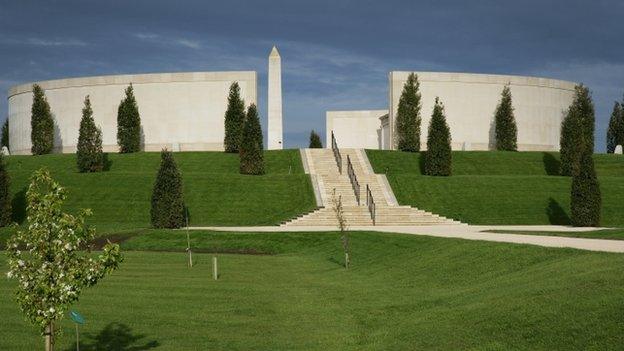Coronavirus: Fundraising for miners' memorial 'stalled'
- Published
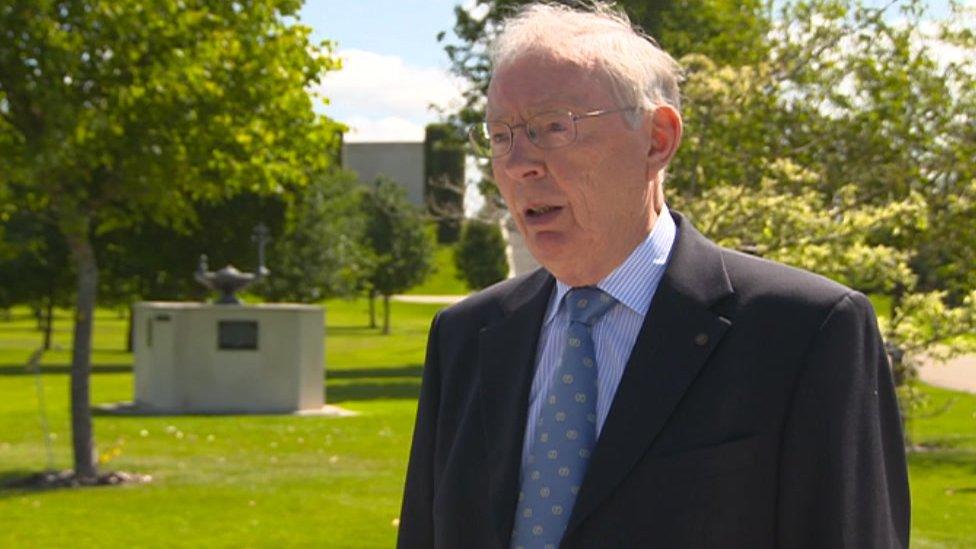
Michael Mellor hopes the memorial will still be unveiled next June as planned
Fundraising towards a national memorial paying tribute to miners has stalled during the pandemic, supporters say.
Chase Arts for Public Spaces (Chaps) began fundraising after being given permission to build the monument at the National Memorial Arboretum last year.
The group says it will be a place for people to "pay their respects to the men, women and children who worked and died" in the industry over many years.
It now hopes people will sponsor 22 plaques in the memorial's design.
Michael Mellor, Chaps president, hopes communities connected to mining will get involved and said the group was also looking for funding through grants after the Covid-19 lockdown saw fundraising "come to an immediate stop".
It has raised £20,000 of its £100,000 target so far, but hopes the National Miners' Memorial will still be unveiled next June as planned at the Alrewas site.
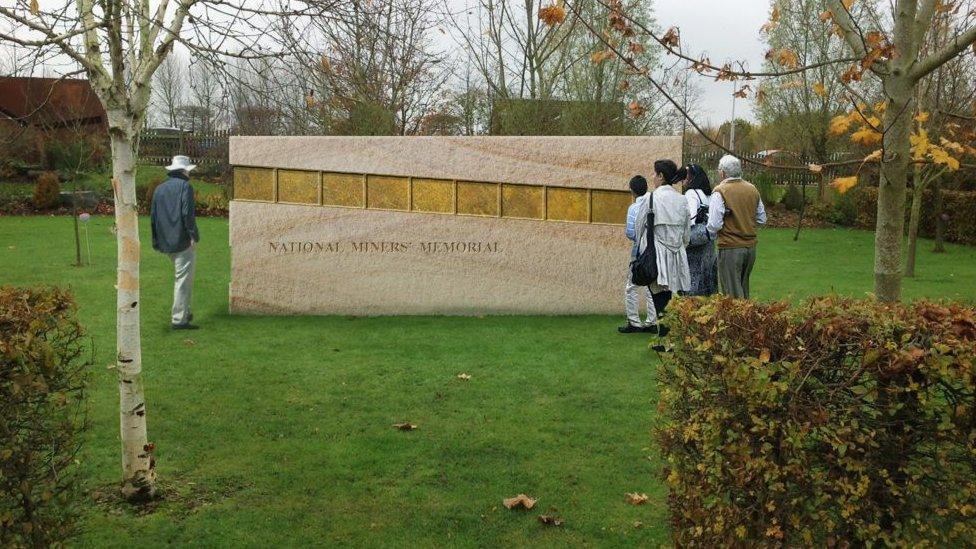
An artist's impression shows how the memorial may look
Mr Mellor said: "Unfortunately with Covid it shut everything down and more importantly I think people looked to help the NHS in their drive to ensure all of our safety."
Events the group had planned throughout 2020, including concerts, all had to be cancelled.
"We're now hoping to re-energise our campaign as lockdown eases, but holding big group events isn't really possible so we're offering the plaque sponsorship, while monitoring the situation to see what else we can do," Mr Mellor added.
The memorial will have a bronze frieze depicting the history of mining, including recognising the colliers' contribution to the two world wars.
Sculptor Andy de Comyn, who is creating the 2m high by 5m long monument out of Derbyshire stone, said: "When I was at school mining was a geography lesson, now coal mining is a history lesson, because it doesn't happen any more and so it's important that future generations understand what miners had to go through."

Follow BBC West Midlands on Facebook, external, Twitter, external and Instagram, external. Send your story ideas to: newsonline.westmidlands@bbc.co.uk , external
- Published19 May 2019
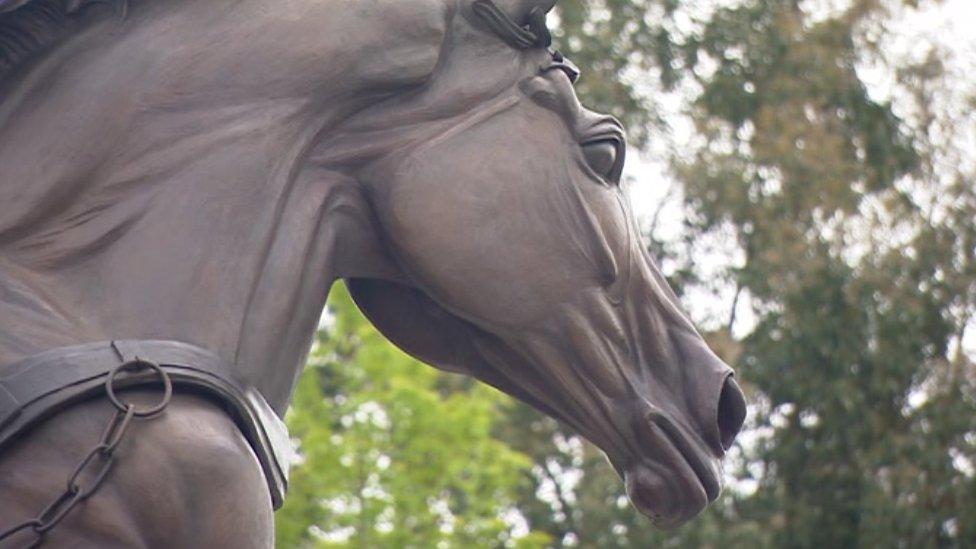
- Published5 October 2019
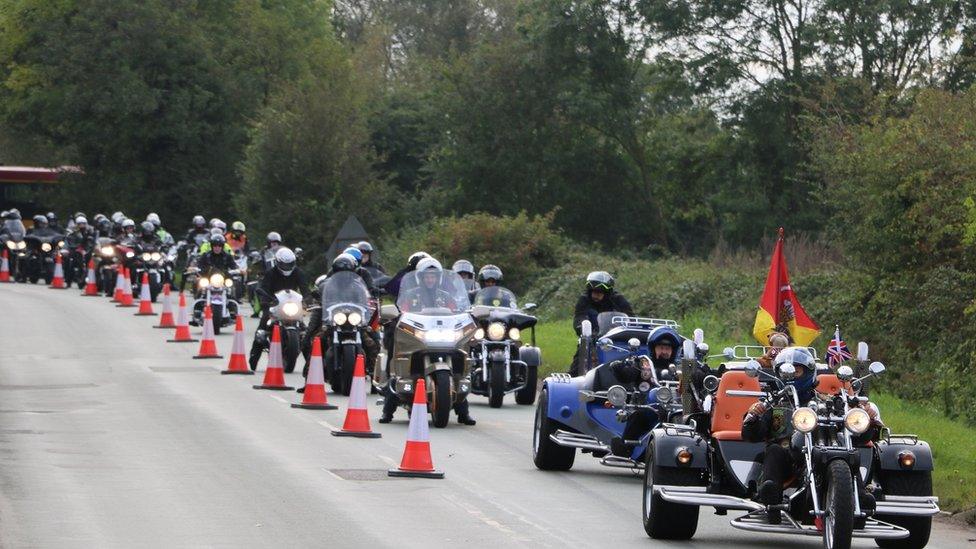
- Published10 May 2015
